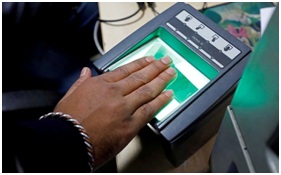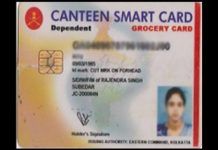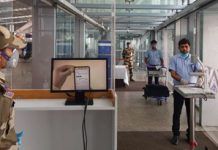The Unique Identification Authority of India (UIDAI) has told the Delhi High Court that it was technically not possible to match the fingerprints of an unidentified body with the biometrics of 120 crore people stored in its database. UIDAI submitted before a bench of Chief Justice Rajendra Menon and Justice VK Rao that matching of biometrics, including fingerprints and iris, is done on 1:1 basis and Aadhaar number is required for it.
The court was hearing a petition filed by social activist Amit Sahni seeking a direction to the centre and UIDAI to utilise Aadhaar biometrics to identify the unidentified dead bodies. The bench asked the UIDAI to bring on record the details and file its response to the plea, explaining the system as to why it was not possible to match the fingerprints in such cases with the Aadhaar database. It also sought the reply of National Crime Records Bureau (NCRB) on the plea and listed the matter for further hearing on February 5 next year.
The petition has sought a direction to the centre, UIDAI, NCRB and all the states to scan biometrics of unidentified bodies and process them with Aadhaar portal to trace any pre-existing biometric details. Noting the submissions of UIDAI’s counsel Zoheb Hussain, the bench said if it was technically not possible, how can it direct authorities to do it.
Mr Sahni, also an advocate, submitted before the bench that it was possible to use Aadhaar biometrics to identify the dead, and even missing persons were traced through Aadhaar.
The UIDAI counsel said that for matching biometrics, it required prints of all the fingers, iris scan and if they go by only one thumbprint scanning, there are chances that it would match with multiple persons.
“It is not possible. There are 120 crore persons on Aadhaar. It is always done 1:1,” he said.
He also referred to the October 12 order of an Aurangabad bench of the Bombay High Court where the investigating officer had moved the court seeking permission to compare fingerprints of a dead woman in Aadhaar database to establish her identity.
The UIDAI had told the high court that it was not at all possible to compare the fingerprints with the information stored. Noting this, the high court had dismissed the investigating officer’s plea. Mr Sahni, in his plea, has sought directions to the centre and UIDAI to share pre-existing Aadhaar details, if already there, without any delay, with the NCRB and states for identification of dead bodies.








